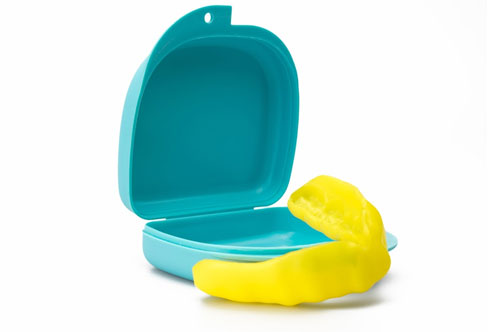Dry mouth is darned unpleasant. The main symptom of xerostomia is the name that less scientific types use for it. Other symptoms include a burning sensation in your mouth or tongue, mouth sores, dry or cracked lips, bad breath, and problems chewing or swallowing food.
Worse, though, dry mouth can cause some pretty serious dental damage. Saliva is one of your best defenses against tooth decay. It helps move food debris away from your teeth and gums. It also contains elements like bicarbonate, calcium, and phosphate, which strengthen teeth and help protect them from decay.
So a shortage of saliva leaves you more prone to cavities. It also leaves you at greater risk of gum disease, which is the leading cause of tooth loss among adults.
Our Montgomery, AL dentists can take care of cavities with fillings or other dental restorations. And we can eliminate gum disease too, with treatments like scaling and root planing. But we’d rather prevent those kinds of problems from occurring in the first place. In the case of dry mouth, we can suggest products that may help, like mouth rinses and artificial saliva.
To talk to our dentists about dry mouth, or anything else, call Carmichael Dental Care at 334-600-1423.
Common Dry Mouth Causes
Medication can cause dry mouth. Hundreds of medications, including common ones like muscle relaxants, antidepressants, antihistamines, and decongestants, dry out your mouth. That’s one reason why senior citizens seem to suffer more from dry mouth than other age groups, as they take more medications.
In fact, our dentists may suggest that you talk to your physician about switching to medications that may be less likely to cause dry mouth or adjusting the dosage of your existing meds. Sometimes it’s not difficult to make a change.
Medication isn’t the only cause of dry mouth. Here are some others:
- Medical conditions, including stroke, Parkinson’s disease, rheumatoid arthritis, and diabetes
- Tobacco usage
- Radiation and chemotherapy treatments
- Dehydration
Dry Mouth Can Worsen in Summer Months
Because our body typically produces less saliva in summer months and high temperatures can also worsen symptoms, you’re even more likely to suffer from dry mouth in the summer. Not only that, but fun activities like vacations and cookouts can aggravate it too. Many of us relax their usual oral hygiene habits while traveling. We eat out more too, and may indulge in more unhealthy foods.
In summer many of us quench our thirst with sugary drinks like soda or acidic drinks like lemonade or fruit juice. Both sugary and acidic beverages can cause erosion of tooth enamel, leaving teeth more susceptible to cavities.
Many of us suffer from allergies in warm-weather months. They can cause dry mouth too, because you breathe more through your mouth when your nasal passages are blocked.
What You Can Do to Fight Dry Mouth
The good news is, it’s not that difficult to counter the effects of summer. Drinking more water is the single most important thing you can do. Ninety-nine percent of saliva is water, so drinking more of it is an important way to replenish saliva. In the summer, you should drink at least two liters of water a day, more if you are participating in sports or other activities.
Here are some other tips for fighting dry mouth in the summer – or any time:
- Eat lots of fresh fruits and vegetables. Choose ones high in water content, like watermelon, cucumbers, and tomatoes. It’s also a good idea to rinse your mouth with water after you consume acidic fruits or fruit juice.
- Lower your caffeine consumption. Caffeine is a diuretic, as is alcohol. It’s best to limit your consumption of diuretics.
- Suck on sugar-free mints. This helps spur saliva production. And bonus, it’ll freshen your breath too.
- Use a lip balm. This will make you more comfortable if your lips are dry or cracked.
- Give up smoking and other tobacco products.
- Use a room humidifier at night.
Feel free to ask us about dry mouth at your next dental exam, or any time. Call 334-600-1423.
Visit Carmichael Dental Care
We can see you as soon as tomorrow!





